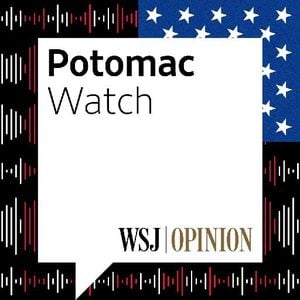On January 31, 2025, the Pentagon officially revoked its travel reimbursement policy for military personnel seeking reproductive health care, including abortions, out of state. This directive, issued by the Defense Travel Management Office, aligns with President Donald Trump's recent executive order reinforcing the Hyde Amendment, which prohibits federal funding for abortions.
The revocation of this policy marks the end of the Biden administration's effort to provide members of the military, particularly women, with the means to access reproductive health care when stationed in states with strict abortion laws. Under the Biden policy, service members could receive financial reimbursement for related travel, lodging, and time off from work to seek care legally available elsewhere.
Implemented shortly after the Supreme Court's decision to overturn Roe v. Wade, which had guaranteed federal protections for abortion rights, the Biden-era policy aimed to support service members who could be stationed far from reproductive health services. According to Pentagon records, the policy had been utilized by troops 12 times from June to December 2023, costing approximately $40,791.
Senator Tommy Tuberville, R-Alabama, who has been vocal against the policy and blocked military promotions for nearly 11 months as part of his protest, expressed gratitude for the decision. “For the past two years, I have been sounding the alarm about the Pentagon’s illegal and immoral practice of using taxpayer dollars to fund abortions,” Tuberville stated. He emphasized his belief, shared by many Republicans, about the moral obligation to prevent taxpayer funding from being used for abortion services.
The Pentagon's decision was met with immediate backlash from various lawmakers. Senator Elizabeth Warren, D-Massachusetts, labeled the action as “shameful,” arguing it endangers both service members and their families by limiting access to necessary reproductive health services. Warren remarked, “Now, Trump is turning his back on our service members — and our servicewomen, in particularly — to score political points. It’s shameful, and will only make our troops and our nation less safe.”
Opponents of the Pentagon’s rollback assert it contradicts the fundamental goals of the Department of Defense, which should include ensuring the health and well-being of all service members. A joint statement from 19 Democratic senators highlights the core issue: “This decision strips away service members’ ability to access the reproductive care they need, which is nothing short of abhorrent.”
Critics also warn of potential repercussions for military recruitment efforts, expressing concerns over sending messages to women about their value within the armed forces. Senator Jeanne Shaheen, D-New Hampshire, indicated the negative impact this policy could have on recruiting women, asserting, “U.S. service members have no control over where they are stationed and what state laws may govern their bodies.”
The prior policy, conceived under then-Defense Secretary Lloyd Austin, was intended to mitigate the hardships service members faced concerning reproductive healthcare, particularly as numerous states enacted abortion bans following the Supreme Court's ruling. Prior to its cancellation, the reimbursement policy was one of the few avenues for military families to access timely reproductive healthcare. The department had reported concerns about how the lack of accessibility to reproductive care was affecting military readiness.
The timing of the Pentagon's announcement coincided with broader Republican legislative efforts to restrict abortion access nationwide. Recently, leaders from the CatholicVote organization supported the revocation, indicating it aligns with their long-term goals to prevent taxpayer dollars from supporting abortions.
Despite the minimal prior uptake of the policy, the financial burden it addressed, albeit limited, holds substantial significance for many, placing emphasis on healthcare access inequalities exacerbated by geographical restrictions. The discontinuation of this policy occurs at a time when women's health advocates worry about the rollback of reproductive rights at both state and federal levels.
Organizations advocating for reproductive rights have responded strongly against the Pentagon’s decision. Nancy Northup, president and CEO of the Center for Reproductive Rights, underscored the risk to health and safety posed by restricting access to reproductive healthcare.
Overall, the Pentagon's announcement not only signifies regulatory changes within military healthcare policy but also sends ripples through the broader national conversation about reproductive rights, healthcare equity, and the future of military personnel management. The move reestablishes the contentious debate surrounding taxpayer funding for reproductive health, reflecting the prevailing political divisions echoing across American society.



